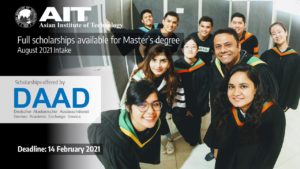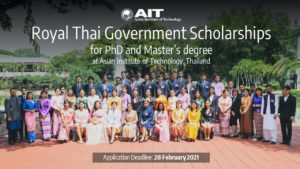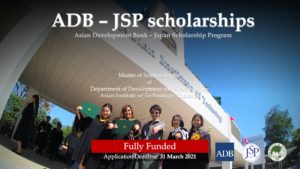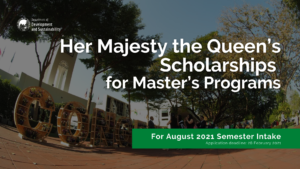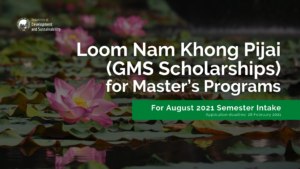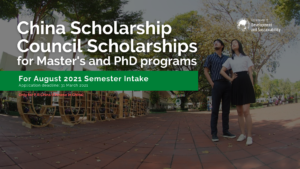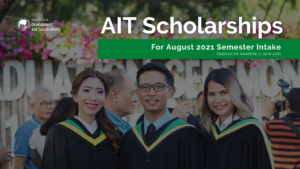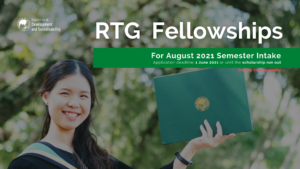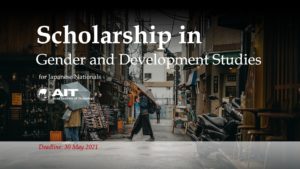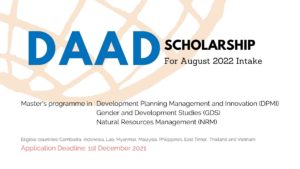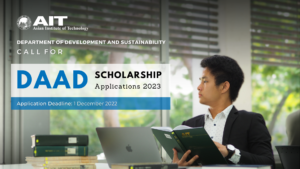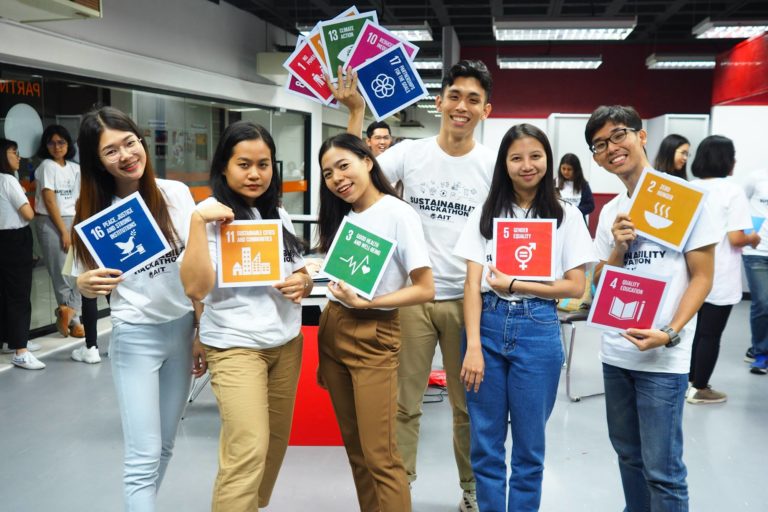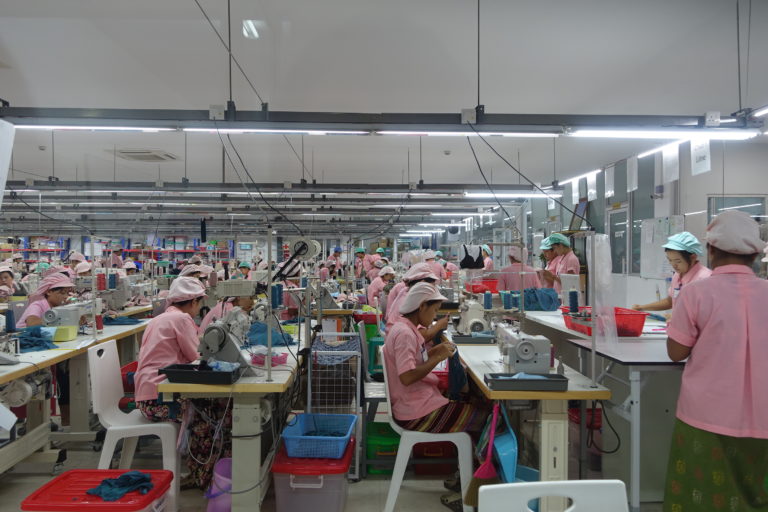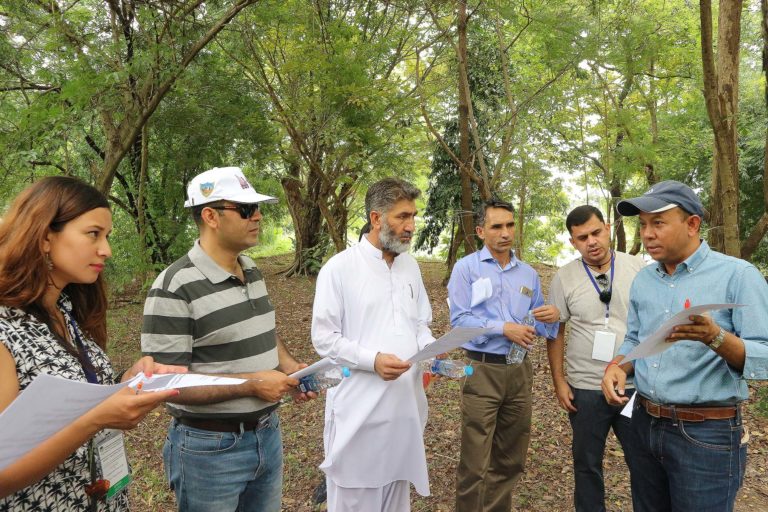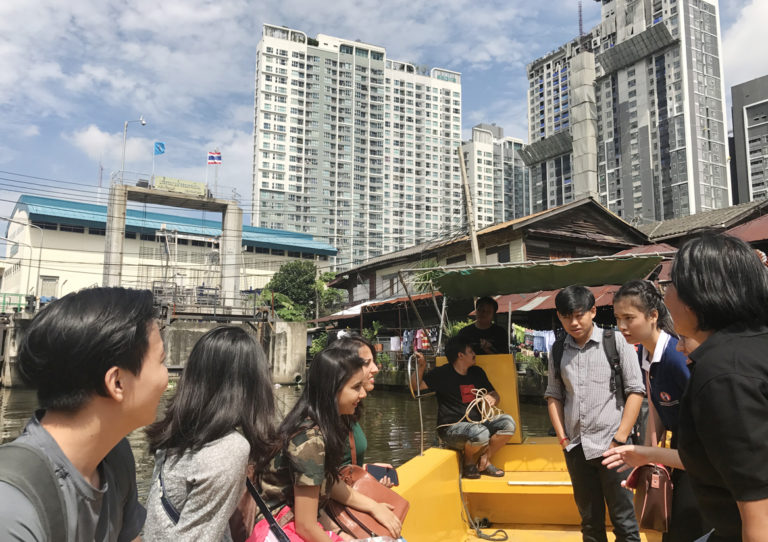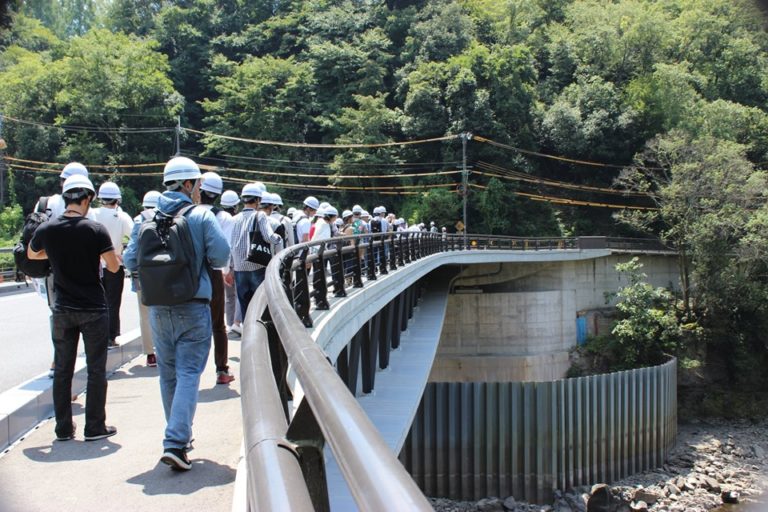About
Department of Development and Sustainability
The Department of Development and Sustainability (DDS) aims sustainable development in the Asian-Pacific region through higher education, research and outreach. Established in 1959, AIT is a leading regional postgraduate institution and is actively working with public and private sector partners throughout the region and with some of the top universities in the world.
Ready to Join DDS
Scholarships Opportunities
Academic Programs
At the Department of Development and Sustainability (DDS)
School of Environment, Resources and Development (SERD), Asian Institute of Technology (AIT), Thailand
The Development and Sustainability program offers master’s and doctoral degrees based on an interdisciplinary approach to sustainable development. It builds upon shared expertise and offers an academic curriculum that draws upon strong socioeconomic and environmental expertise from faculty members with regional and/or global experience. This program will be especially attractive to institutions looking for managers with a broad knowledge of development issues, and candidates who may not want overly specialized academic and research skills. The program also aims to address the capacity building needs of the United Nations Sustainable Development Goals (SDGs) regarding both environmental and social dimensions of development. [[ Learn more ]]
Gender and Development Studies (GDS) develops scholars, analysts and practitioners who can integrate gender approaches in to development planning and management, and conduct original gender and development-related research for advancing development goals, including the Sustainable Development Goals, globally and in Asia. As an academic arm of community-based efforts for gender equality and for the advancement of rights and inclusion of women and individuals of all sexual orientation and gender identity expression, GDS aims to be a center of excellence in gender and development studies by integrating gender equality as a key intellectual perspective and ethical concern in sustainable development. [[ Learn more ]]
Natural Resources Management academic program is designed to train students in the fields of sustainable use and management of natural resources, community-based natural resources management, forest carbon accounting, biodiversity conservation, valuation of ecosystem services, economics of NRM, NRM and climate policy, technologies and sustainability, assessment of natural resources using conventional and modern temporal and geospatial technologies. NRM focuses teaching and research on both terrestrial and coastal resources and ecosystems from social and physical science perspectives. NRM also provides training, outreach and capacity-building opportunities and has assisted many universities in Nepal, Cambodia, Vietnam and more to develop their academic programs. [[ Learn more ]]
Urban Innovation and Sustainability (UIS) program aims to enhance the capacity of professionals in coping with growing and complex urban needs, challenges and opportunities. Innovation refers to development of new technologies such that they denote physical objects (e.g. products, services) and knowledge systems (e.g. methods, systems), and sustainability transition aims to meet socio-ecological system needs in ways that promote healthy ecosystems, human well-being, and viable economies. The program covers systems approach of multi-scale and cross-sector, and multi-agent connectivity and decision making. It also applies different methods of enhancing capacity, for emerging themes, e.g., ageing society, circular economy, smart buildings, responsible tourism and consumption, healthy and inclusive cities, etc. [[Learn more ]]
Regional and Rural Development Planning academic program focuses on rural poverty, improvement of the quality of life and social and economic development. Practice oriented rural-regional planning is carried out regularly at district and sub-district levels following a participatory and integrated approach. Attention is paid to management of development institutions, infrastructure and resources. Sectoral and spatial planning is equally emphasized along with the management of rural development programs and local development projects to strengthen rural communities for sustainable development. [[ Learn more ]]
Disaster Preparedness Mitigation and Management – recent intense occurrences of disasters all over the earth leading to massive loss of life and destruction of infrastructure have grabbed the attention of the world. Receiving less attention is disaster risk management – the know-how to prepare for such disasters and to reduce their effects. The academicians and practitioners at AIT, and its partner institutions are determined to contribute more toward bringing this know-how to disaster managers and engineers. The aim of this academic program is to instill the necessary interdisciplinary capacities to manage and minimize the effects of disasters in people on the front lines of disaster response and applicants with engineering, architecture, natural and social science, as well as management backgrounds. [[ Learn more ]]
